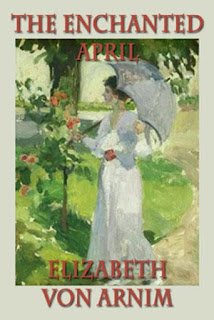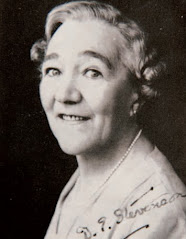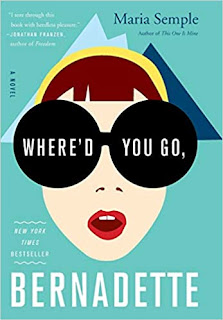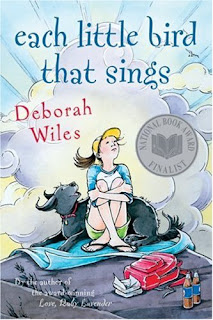When I look at my reading stack for July, I feel like I was more of a mechanical reader who was reading books simply because they are "supposed" to be read and not so much because I was enjoying them. I read them on the recommendation of others and my dislike of them is in no way meant to disparage the other readers. Everyone likes what they like in literature and I just didn't like these books for one reason or another. Are we all clear on that point? If you love these books, don't take unnecessary offense. :)
*****
First up, I read
The Enchanted April. I wanted to like this because people I really like, really liked this book! Apparently Lucy Maud Montgomery read and enjoyed this read which was originally published in 1922. That bit of info was the tipping point in my deciding to read it for myself because
anything that Montgomery read . . . ! This book follows the trails of four women: Lottie Wilkins, Rose Arbuthnot, Mrs. Fisher and Lady Caroline Dester. Each woman is looking for some sort of escape from her life in England and when a castle is offered up for rent during the month of April on the Italian coast, the women pitch in and spring for it. Their hope is for a break from the monotony of duty, essentially. They each have ways in which they are simply tired of "being good" and want a vacation from life's constant demands upon them. A vacation in a castle in Italy seems just the ticket. (Honestly? It's hard to blame them, eh?) They go to Italy and stay in the castle, and the overriding theme is that the castle atmosphere is full of the magic necessary to bring all things in life to rights, mending broken hearts and opening closed ones.
On the one hand, I liked the idea of a month long vacation in a castle. That idea is enormously tempting. To be able to travel to unfamiliar places and escape the norm can be a truly beautiful and blessed thing which I cannot deny! I found Elizabeth Von Arnim's writing style to be quite pleasant and engaging. I thought she had a few really clever lines and a way with words which I cannot complain about in the slightest. Then too, the way the story was written rubbed me a bit wrong in that here you had four discontented female (two of whom were married) who were sneaking away from husbands and family strictly because they were "tired of being good all of the time." In that way, this book reads as a precursor to Eat, Pray, Love -- a book I think has had disastrous effects on married women everywhere.
Interesting to note, if you'll circle with me back to Montgomery for a moment, is that The Blue Castle was published in 1926. I think the character of Valancy would have gotten along rather famously with the women at the Italian castle. I would venture a guess that this book had its influence not only in Montgomery's book writings but also in her personal thought life and journals as she battled with her own demons of discontent.
All in all, I can't say that I wholly disliked The Enchanted April. However, I can see things about it that I definitely do not like and that rub me the wrong way. I see where the message of escaping "doing good" leads and that makes me ever so cautious about The Enchanted April on the whole.
My two-cents!
*****
Secondly I read
Summer, by Edith Wharton. This is my second Wharton to read, the first being
Ethan Frome. I didn't care for
Frome but I know plenty of people who 'love a good Wharton' so I had no qualms about giving her another go.
Summer seemed appropriately themed (it being July and all) and I thought I would choose this selection for my next in-town book club selection. It's my turn to choose the book and lead the discussion and so I dutifully pulled out my copy well in advance, read it, felt desperately depressed, and changed my reading selection for the month. (No problem because one other lady in the group also read it in advance was equally depressed by it.
Kindred Spirits are we!)
This book tells the story of Charity Royall who was adopted by Mr. and Mrs. Royall in name only, but not legally. Mrs. Royall passes away and Charity is the lone woman in the house in this coming-of-age story where she has to deal with both the inappropriate attentions of Mr. Royall and also with the inappropriate attentions of one Lucias Harney. (Anyone with a name like Lucias Harney . . . . )
I believe the intelligent response to this read is to say: "Charity learns what true love and sacrifice really look like." But all I can say is: "Charity was immature and unlikeable from start to finish and there wasn't a man in the book to admire. Read it and weep." It felt bitter from beginning to end and I was infinitely relieved to be done with it.
I had a few other Wharton's on my shelf yet to be read (The House of Mirth and The Age of Innocence) but I came to the conclusion that I've had about as much fun with Wharton as I think I can bear. Her writing style was similar enough in the two stories that I did read, that I doubt I'll find much enjoyment in the others. Being a good reader though, I did research The Age of Innocence online before deciding too hastily against it. I read a synopsis or two and watched movie trailers on YouTube (heh....) and decided that, no, I really don't want to read anymore Wharton!
My four cents!
*****
Lastly, I read
The Lost Child of Philomena Lee by Martin Sixsmith. (It has since been renamed, simply,
Philomena but I am including the original title and cover art for purposes of this review.) I have even less nice things to say about this book. I picked it up because I had watched the movie
Philomena starting Judi Dench and was intrigued by it. I wanted to learn more about Philomena herself and a good thick book on the subject looked just the ticket. However, I am afraid to say that the movie is better than the book! (And most Goodreads reviewers would agree with me!
Look it up!)
Philomena Lee was born and raised in Ireland. In 1952, when she was an unwed teenager, she gave birth to a baby boy who, through a series of events, was adopted by a couple in America. The baby boy was renamed Michael Hess and if you Google his name you'll find out why this book became important.
I am an adoptive mother myself and I was very interested in reading Philomena to know and understand the mother better. What would a birth mother feel like, having her child taken from her? How would she live her life, knowing she had a son who was living on the other side of the world from her? Somewhat understandably, author Martin Sixsmith focused his attentions on the life of Michael Hess. Philomena was more of an after thought in the writing. That was disappointing, but it was made infuriating because Sixsmith spent 90% of the book discussing Hess's sexual orientation, preferences and encounters, burying any other topic available to him.
I skated and skimmed my way through the book trying to avoid the salaciousness and get back to Philomena who, sadly, only re-entered the scene at the end of the book! Furthermore, if you check out any article about this read online, and make a study of the Goodreads reviews, you'll see that the people who interviewed for this book decry the absurdity of Sixsmith's writing. Sixsmith downright fabricated parts of Hess's life, making up conversations and scenarios, and seemed to want to dive more into the topic of Hess's homosexuality than his status as, oh, say, a basic human being with an interesting backstory.
There is an incredibly interesting history of adoption between Ireland and American that absolutely can and should be explored. It was absolutely not researched or dealt with by Sixsmith in any productive or educational way. This book is an exploitive, explosive, fabricated obsession with sex, rather than dutifully told fact.
If you would like to explore the topic of International adoptions - as specifically relates between Ireland and the U.S. - please do not read this book. If you want to get to know Philomena and her story, watch the movie and then watch Youtube clips of interviews she personally gave. Get to know her as a person. Get to know Michael as a person! But as the people who knew him suggest he is not really to be found within the pages of this book -- don't bother with it!
My six cents!
















